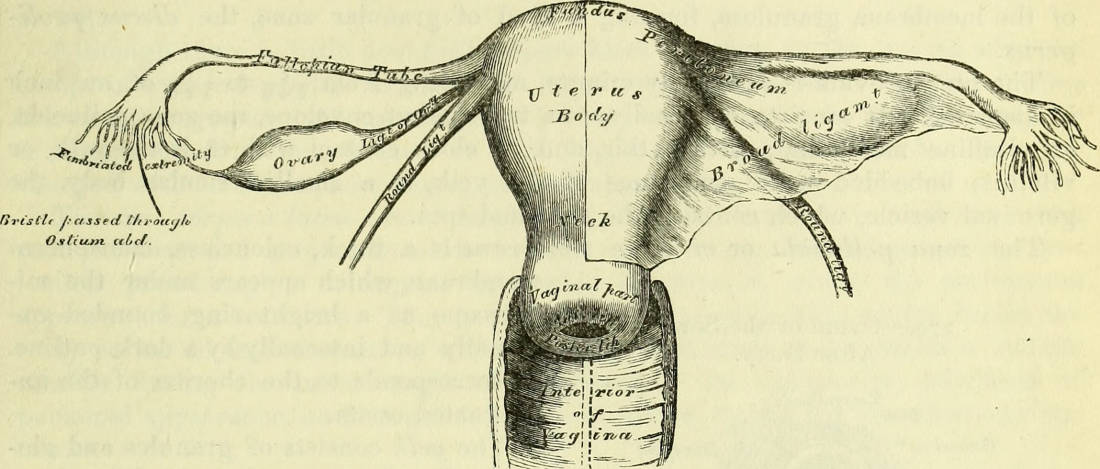
In the months leading up to the province’s decision to cover Mifegymiso, medical student activists at the University of Saskatchewan were constantly present in the media’s coverage of the story. Their call yielded success; they now reflect on the platforms that helped them be heard.
In March, a group of students from the College of Medicine met with Minister of Health Jim Reiter to advocate for universal coverage of the abortion pill Mifegymiso. The meeting followed an open letter that reportedly garnered attention from various stakeholders and activist groups. At the time, Saskatchewan was one of two provinces in Canada still not covering the pill. The other province, Manitoba, was also receiving pressure from a medical student group.
After the initial meeting, Lara Witt, a third-year medical student and the reported leader of the group, said that “it wasn’t an easy meeting by any means.” In an interview with the Saskatchewan Medical Association, Witt says the students indicated to Reiter that despite the typical slowness of politics, they intended to stay involved until progress was made.
“We told him if we don’t hear from him in a month he can expect another open letter and he’s going to see how annoying we can be, and he accepted that. So it was a very productive meeting,” Witt said.
I tried to frame it as a period of growth and trying new things — those are always scary, but as Saskatchewan residents, it is our right to be able to meet with our political leaders,”
Froehlich said.
The students’ insistence paid off. After three months of public talk around accessibility, economics and ideology, the Saskatchewan government announced the universal coverage of Mifegymiso in June, a week after Manitoba.
The months spent advocating for the cause were a learning time for the students involved. For Jessica Froehlich, a second-year student in the College of Medicine, dealing with the political side of her field was a somewhat new experience and a learning opportunity.
“Even if I came out of [a meeting] thinking it went horrible, it was still something I could reflect on and learn from,” Froehlich said. “I tried to frame it as a period of growth and trying new things — those are always scary, but as Saskatchewan residents, it is our right to be able to meet with our political leaders.”

While the College of Medicine focuses on the technical side of educating healthcare workers, Froehlich says medical advocacy is also “really prevalent in the college.” Froehlich sees advocacy as part of her education and her responsibility as a student.
“One of the pillars of being a medical student is being a health advocate… But if you take away “health” and just leave “advocate,” that should be a pillar for being a student,” Froehlich said.
The students calling for Mifegymiso had access to various resources and supports. They drew on support from the college’s faculty and collaborated with those who had advocated for Mifegymiso before them.
“It was a huge collective effort with a lot of students but also with people who have been working on this for years before,” Froehlich said.
College of Medicine faculty members Sally Mahood and Megan Clark reportedly played a big role in informing and motivating the group. They also supported them in presenting a Mifegymiso coverage savings analysis in a May meeting with staff from the Ministry of Health.
Froehlich says that talking to the Manitoba university students was also helpful for the group, and that the Manitoba government’s decision to cover Mifegymiso in June helped put pressure on Saskatchewan.
“We were so happy when Manitoba got their funding, and then it didn’t take long for Saskatchewan,” Froehlich said. “For one week, Saskatchewan was the only province, and I think that might have put a little pressure on them.”
Froehlich says that students are given learning opportunities and connections through the College of Medicine and that students have a responsibility to use these resources for good.
“A lot of people in university have had some time to develop knowledge around the structural systems that lead to inequity and start to understand how policy can lead to better health,” Froehlich said. “Using that knowledge and information that we have is really important.”
The calling for Mifegymiso coverage was a learning opportunity in itself; through it, the students acquired a deeper understanding of these structural systems and of policy. Froehlich says that when considering issues for which to advocate, Mifegymiso was a good option. Not only was it actionable and impactful, they also knew it would appeal to government from a financial perspective as it stands at only a fraction of the cost of a surgical abortion.
“What made Mifegymiso a good ask is that a lot of the changes you need in policy to have better health outcomes, they take time and more money and it’s more of an investment — it takes time to save money down the line,” Froehlich said. “We don’t like to always make it about finance, but it’s something that’s important to talk about.”

The medical students also encountered the political side of healthcare in relation to the beliefs surrounding the topic of abortion. While the coverage of Mifegymiso was under review in April, the then Minister of Rural and Remote Health Greg Ottenbreit spoke at a pro-life event, raising questions around the impact of politicians’ beliefs on access to abortion.
Samuel Simonson, a third-year medical student and one of the senior students involved in the call, said that the medical students steered clear of the divide in the topic of abortion, focusing instead on the healthcare benefits for which they were advocating.
“We tried to remain apolitical. Abortion is a contentious issue, especially here in Saskatchewan, and people immediatly want to divide it,” Simonson said. “This is about women’s health. We wanted to bring this completely from the perspective of health because that’s how we saw it and how we thought the government would respond to it.”
Simonson echoes Froehlich’s belief that advocacy for their patients should be an area of focus for medical students.
“Being an advocate for patients is one of the most important things a physician could be,” Simonson said. “We didn’t get a lot of formal training on advocacy, but we network with other students across Canada and figure out what works and what doesn’t.”
People like the energy and youth that students bring to advocacy,”
Simonson said.
Simonson says the students brought energy to the conversation even when they did not have the same expertise as other activists.
“People like the energy and youth that students bring to advocacy. It’s not necessarily about knowing everything about the topic or being well-versed as a public speaker, but bringing the passion and the interest and the willingness to learn.” Simonson said. “A lot of it is recognizing that you are someone who can make a difference and can speak up about something that matters to you.”
Froehlich says students have a place in advocacy despite their continuing education on the issue.
“I’m always afraid of doing something or saying something and what if it’s wrong,” Froehlich said. “Sometimes you have to accept that advocacy is usually done imperfectly. There’s always something you could have done differently, but at the end of the day, if you really care, you can’t let that hold you back.”
Thinking about their success in the call for universal coverage for Mifegymiso, Simonson highlights that “this is just one small piece in the continuous struggle for reproductive rights.” Simonson is currently working on growing the advocacy resources available for medical students. He points to the Canadian Federation of Medical Students advocacy toolkit as a resource that is already available.
“We are hoping throughout this year to start doing more workshops for medical students to help students feel more comfortable with advocacy,” Simonson said. “There’s a tonne of resources out there.”
Froehlich sees the coverage for Mifegymiso as an example of the power and responsibility of having a platform as a medical student and encourages others to make use of it.
“Your opportunities to advocate with the communities that you serve is one of the greatest privileges of being a medical student,” Froehlich wrote in a College of Medicine blog post directed at first-year students.
“I can feel the change in how people listen more carefully when they know I am in medical school. It doesn’t mean that my opinions are more important than anyone else’s, but I can harness this platform for others to use when their voices are marginalized.”
I can harness this platform for others to use when their voices are marginalized,”
Froehlich said.
—
Ana Cristina Camacho/ News Editor
Photo: As credited, Creative Commons, Flickr
Leave a Reply